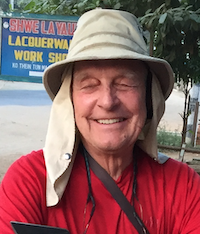Table of Contents
quick links to main Travel Safety posts
1) Safety: Introduction & Risks
General:
Research:
Important Gov't Travel Resources
Travel Safety Issues
Scroll UP ▲
to return here to TOC
Safety: Intro & Risks
Travel safety knowledge = confidant, prudent travel anywhere!
My primary goal is to give you a broad & deep exposure to foreign travel’s criminal & health safety issues so that you will be prepared in advance to recognize & avoid them and better enjoy your travels with the confidence of the well-traveled.
In 20 years of domestic & foreign travel I, as a devout coward, have NEVER suffered a personal attack orloss of possessions or significant money, yet I visited dicey countries (Myanmar) and constantly walk their cities & villages' back streets alone as an 'obvious tourist'.
My confidence, although always tempered with caution, springs from my recognition of risk issues and a never-ending search for effective solutions. EX: If you need money quickly, look under my shoe insert for some flattened US $100s, .....
1. Never eat salads in Asia, Africa or South America
unless. ⇒⇒
2. Look in a shop window reflection as you pass by for ...
3. Don't enter an Uber unless you 1st ...[ Uber-Safe-Practices ]
When you have effective strategies that protect your person, money & health, you WILL have confidence to magnify the joy of your travels.
I. GENERAL
Letter from a Friend:
Recently a younger friend who was planning her 1st foreign travel trip asked me a very simple question, “ Can I travel safely?”. I empathized with her 1st attempt at travel & wanted to give her a useful answer in a reasonable amount of time, so I emailed back a multi-page, “Can I travel safely.“
PURPOSE of this blog is to give you a more complete answer.
My primary goal is to give you a broad & deep exposure to foreign travel’s criminal & health safety issues particularly as a solo traveler although most are also applicable to those touring & cruising.
While I've done considerable past & present research, in the main, my discussions are based on my experiences & personal concerns. Sometimes, if I see an issue I have not actually confronted, I will make that clear in my wording.
My blogs are sprinkled with ANECDOTES from my experience that illustrate safety issues when traveling. These anecdotes are often followed by my suggested “Safe Practices” or IOWs, solutions or advice on those issues.
It is my hope that these Anecdotes & my Safe Practices will be more credible than imagined guesses or 2nd hand solutions.
Unfortunately, my friend’s simple question is analogous to the college professor's humorous test question, "Discuss the world & give two examples.” 
The first question part is impossible to answer cuz almost infinite in scope. The
2nd is currently UN-answerable because we have not yet found any extraterrestrial life.
Safety is a legitimate concern at home & abroad. Familiar ‘home’ is inherently less frightening than a foreign country with a foreign language & foreign culture — everything’s foreign. No big surprise that all of us including myself after 20 years still have fears when I travel. If you have no fears, you have mental health issues or are a fool.
In the main, however, our criminal & health fears are often infrequent & unrealistic dangers that we can & do usually protect ourselves against with knowledge, pre-planning & prudence.
ANECDOTE: panic attacks
Zocalo, Lake Bennet & Yukon
1. Zocalo Mexico City is now what once was the Aztec’s main ancient ceremonial center Tenochtitlan). After I had unpacked in my hotel a block off Mexico City's historical Zokalo district, I began my usual walkabout
Mexico City's huge Zocalo historical square.
Almost immediately I was near-paralyzed with the raw gut-wrenching fear of paranoia. I almost ran back & jumped in bed, but ….. instead, I just kept walking.
It was not my first visit to a foreign developing world city, BUT within a ½ hour, the fear had melted away almost unnoticed & … never returned again — anywhere. Go figure.
Yet, not the first time:
2. Chilkoot "Gold Rush" Trail, Alaska: In 1997 I solo backpacked the Chilkoot Trail https://en.wikipedia.org/wiki/Chilkoot_Trail in Alaska to the Northwest Territories Yukon River’s headwater lake, Lake Bennett, to start a 600-mile solo kayak paddle to Dawson. [YT LINK: Yukon River (to come)]
After paddling 45 minutes I was so gripped with fear (1st panic attack) that I paddled directly to shore & sat staring at the water embarrassed/ashamed of myself.
I spent a ½ hour talking myself thru it: “You planned & prepared for this & frankly you don't have much choice. You're out in the wild so get a grip & get back out there.”
3. Yukon & Big Salmon River Junction:
Several days later the Big Salmon River flushed its massive flow directly into my kayak in the middle of the Yukon River just below Carmack, carrying large half-submerged logs as big as my kayak. [YT LINK: Yukon River (to come)]
This 2nd panic attack struck with no close beach to paddle to. Irrationally, I briefly contemplated jumping out of the kayak & running to shore. Absurd, of course.
Again, I talked myself thru it, “ You have the best equipment, you have trained for this —there is no REAL danger unless you let yourself succumb to the panic."
Minutes later I was back in control, shaken, but never again so frightened until the Zocalo & never again since. xxx



SAFE PRACTICES
knowledge & training
I had never had a panic attack, so don’t know how I could have seen this one coming.
1) Strong commitment to a goal coupled with intelligent research/planning & aggressive training inspires & enhances goal commitment -- a virtuous circle builds on itself.
Perhaps, this ever-expanding 'virtuous circle' conditioned me to credibly, legitimately ‘talk myself through it.”
2) I can only guess that a habit of ‘talking to myself' was somehow good prep. As a salesman, lawyer & teacher, I always prepared well & practiced my presentations in advance.
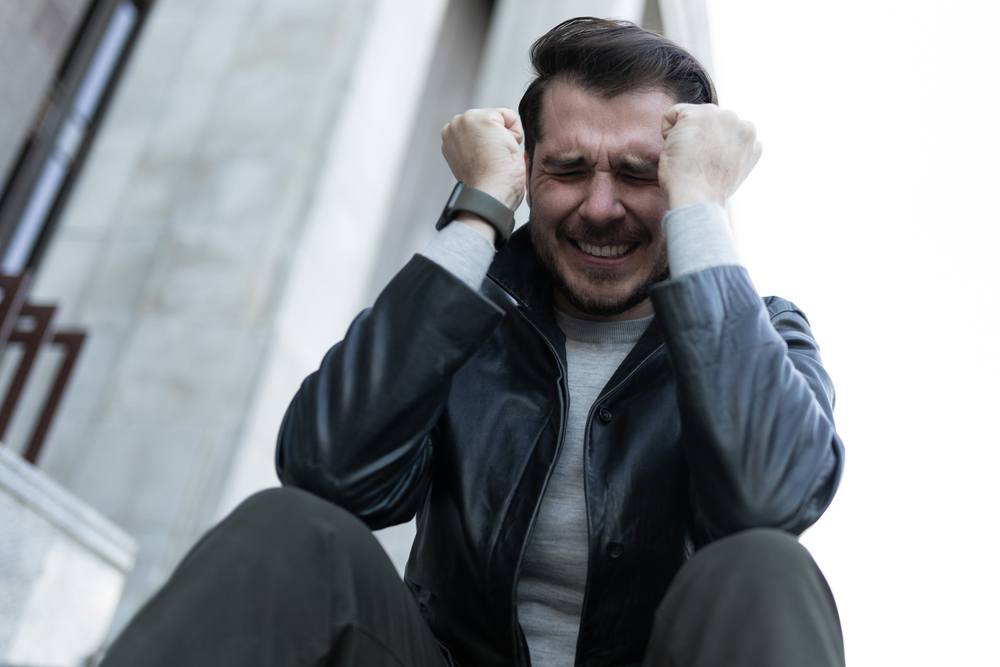
QUOTE: Herbert's "Dune"
“I must not fear. Fear is the mind-killer. Fear is the little-death that brings total obliteration. I will face my fear. I will permit it to pass over me & through me. & when it has gone past I will turn the inner eye to see its path. Where the fear has gone there will be nothing. Only I will remain.”
Oh, ... the many times I have relied on this quote to get me ‘Over Troubled Waters’
I give you these anecdotes & quotes, not to scare the hell out of you, but to help you realize that fear is a very natural emotion that can usually be overcome with knowledge, experience, prudence & strong commitment to a goal. [Youtube Link 'Yukon kayak trip' to come]
In my life (83) I have learned that my fears are often overblown & eventually melt away as I confront an issue, gain more knowledge, training & experience & see the ‘light of day.” (Nights are scary).
ANECDOTE: scuba diving
knowledge & training overcomes fear ...
At 45 I had always been afraid of what seems like the absurdity of scuba diving. But I had bought a large sailboat with accompanying fantasies & scuba diving seemed a necessary part of that experience.
I visited scuba shops, read scuba literature, & then signed up for lessons including an ocean dive which, in sum, left me confident to dive with friends.
My Lesson Takeaway: Ignorance & imagination gone awry equal paranoia; while, …knowledge & acquired skills = confidence & performance

SAFE PRACTICES
Do WHAT underwater?
1) research the issue: Scuba diving, investing or foreign travel's solo walkabouts.
Youtube videos, Google Search & social media make it incredibly easy to examine an issue, study its fundamentals and let a multitude of pros teach you.
2) create a plan of action: Explore the issue: available scuba diving clubs, formal scuba training classes, & equipment costs.
3) SIT travelers can 'pretend': research any city’s hostels, compare their attributes [pplk: resources; hostel: (to come)], and most of all, their guest reviews, then, in your opinion, prioritize the best 5.
4) Test your plan: visit a club meeting -- very welcoming OR, book a night at your top hostel choice. You can always cancel immediately at no risk, no cost. Who knows, someday you may do it for real.


ANECDOTE: Melvin Belli's advice
one word, "Preparation"
When as a 1st year law student (35 yrs old), I approached the legendary San Francisco “King of Torts”, Melvin Belli at his book signing appearance & asked his advice.
(He defended Jack Ruby who killed Lee Harvey Oswald; Zsa Zsa Gabor, Errol Flynn, Chuck Berry, Muhammad Ali, The Rolling Stones)
He autographed my new book with one word: -- “Preparation”
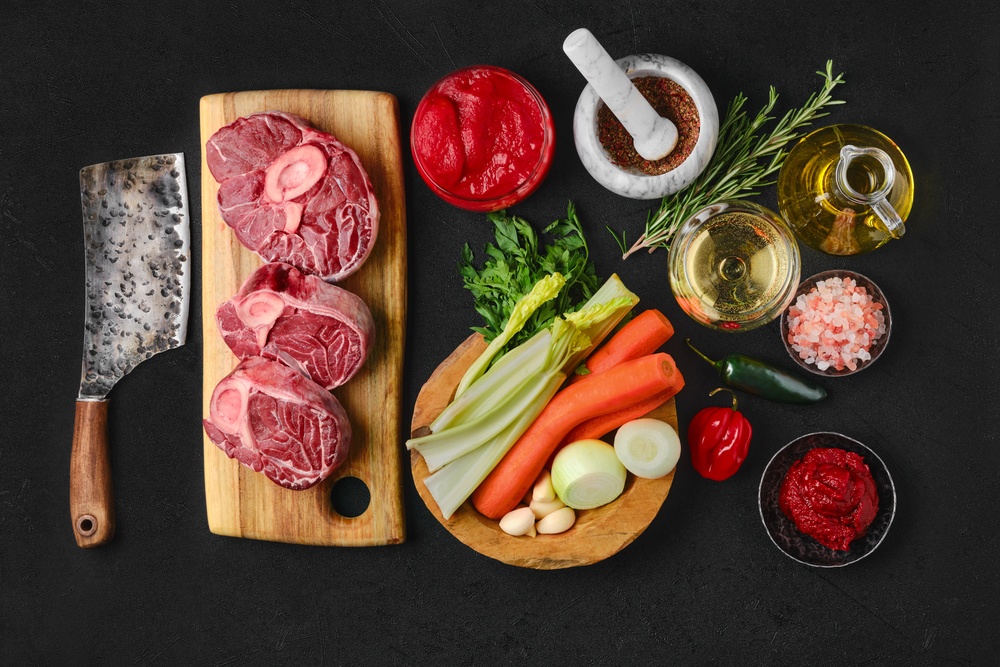
SAFE PRACTICES
one word -- "Preparation"
The fact that you are taking the time to read this blog is IMO one very wise approach to your own safety.

ANECDOTE: Gerry Spence "Cowboy Lawyer"
Jerry never lost a case...
Jerry Spence, WY (famous US torts attorney, https://en.wikipedia.org/wiki/Gerry_Spence who never lost a case as prosecutor or defense attorney, was known to prepare a case so well that he invited the defense attorney’s legal team to his Jackson Hole office where he displayed his ENTIRE case IN ADVANCE of trial.
This was NOT required by law or tradition. Invariably, Spence’s case was so ‘well prepared” that the opposition settled without trial. (Preparation is a deadly advocate.)
Yet, in hostels across the world I see guests, who have traveled 1000s of miles, arrive in-country for the first time AND, THEN …. open their guidebook to search out sights & things to do. This lack of preparation may be fine for those just “getting away from it all” but foolhardy when applied to their own safety.

SAFE PRACTICES
knowledge & training
The fact that you are taking the time to read this blog IMO evidences your commitment to your own safety. Your investment & research into safety issues & your realistic-driven paranoia’s prudence will be the wisest investment of time you can make.
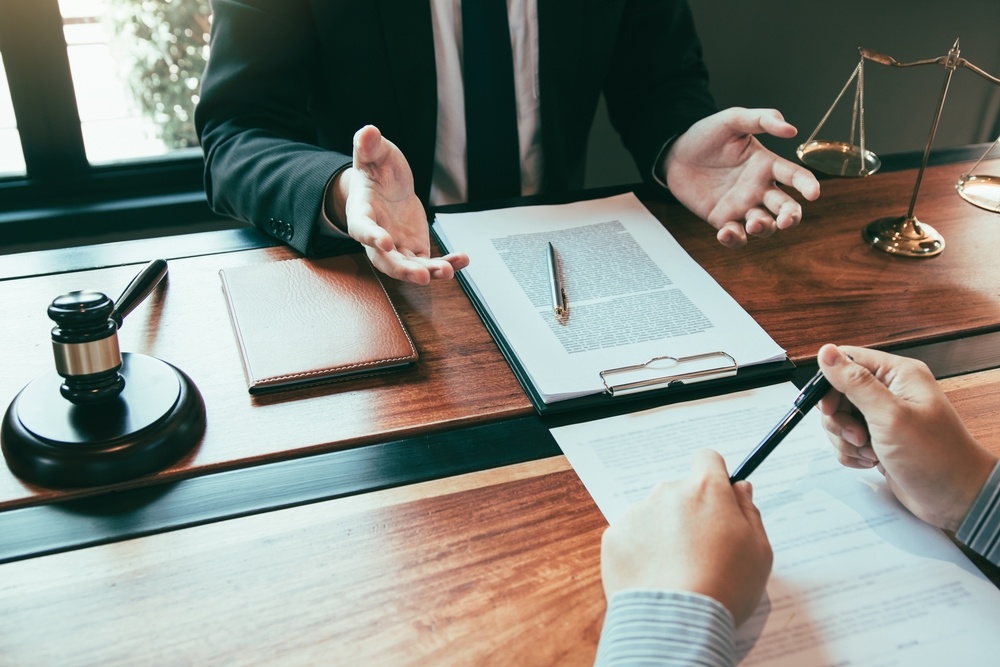
1) USA DOS: Bureau of Consular Affairs (BCA) protects US citizens abroad by:
a) assigning 'travel advisory threat level' to countries: #1 (Normal) - #4 (Do Not Travel).
b) describing each country’s tourist risks & wise Safe Practices.
c) provide travel info: entry & exit rqmts, local laws/customs, health info, trans~, etc.
d) issues current alerts: see http://travel.state.gov/travelsafely.
e) “Annual world travel risks” status: terrorism at US citizens. NOTE: Enroll in FREE DOS’s “Smart Traveler Enrollment Program” (http://STEP.state.gov) before travel.
f) provides host country’s US embassy/consulate safety, security, & health info.
g) helps nearest US embassy/consulate contact/locate US citizens in emergencies: natural disasters, civil unrest, or family emergency.
2) UK’s Foreign Travel Advice: threat status for multi- countries - https://www.gov.uk/foreign-travel-advice
3) CDC: (Centers for Disease Control and Prevention): Chapter 3) Environmental Hazards & Other Noninfectious Health Risks https://wwwnc.cdc.gov/travel/yellowbook/2020/noninfectious-health-risks/safety-&-security-overseas.
4) Wiki: Americans murdered abroad: https://en.wikipedia.org/wiki/Category:American_people_murdered_abroad.
Criminal and health travel safety issues
III. Travel Safety issues?
Criminal and health travel safety issues
There are two broad areas of “personal safety” concerns: 1) Criminal and 2) health.
1. Criminal dangers:
............ divide into harsh and soft crime.
Rare, but serious, harsh crime is murder, assault, robbery & rape.
Soft crime is everything else: pickpockets, taxi drivers, scams & touts, passport/cash /credit card theft and stolen luggage & personal possessions?
2. Health dangers
........ include those we can anticipate & protect against before travel (vaccines, daily prescript drugs) and those that arise while traveling (infections, cold, upset stomach).
More ‘Safety sub-topics” blogs: Health! -- to come.
We will start with criminal dangers.
Criminal Dangers:
If my 20+ year’s experience is relevant, I have never been physically attacked, traveling or otherwise, but I've been afraid. NOR, can I recall meeting anyone traveling who alleged experiencing a violent crime?
I tell you this not to dupe you into a false sense of security. Rather, I want you to gain a realistic sense of risks &, importantly, strategies for avoiding them.
I want you to recognize that violent crime is always possible anywhere in the world including in USA although statistically slim. My quick & dirty Google search revealed very little harsh crime against tourists info that was current.
Perhaps, because I'm a practicing coward, I have been prey over the years to a few scams & usually only once. With a coward’s obsessive paranoia, I have researched, pondered & devised strategies/tactics that protected me in great measure.
My paranoid mindset is important. Remember scammers are often very well-trained experts ... hunting. We're inherently honest & naive.
Paranoid's paranoia ...
“Just because you're paranoid doesn't mean they aren't after you.” – Joseph Heller, Catch-22…
“Your mind is working at its best when you're being paranoid. You explore every avenue and possibility of your situation at high speed with total clarity.” I don't totally except this because paranoia can also cloak you like a cloud.
― Banksy, Banging Your Head Against a Brick Wall
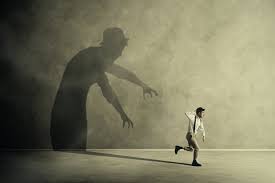
I will teach you what I know.
Read my safety blogs and anything else you can find. Talk to other travelers, particularly in hostels and when traveling.
Remember: "A good idea doesn't care who has it." Carson-Roberts Advertising (Of course, beware of copyright infringement & patents)
Be paranoid.
Grizzly Bears & Travel Criminals:
In 1986, a few years after I quit my LA law practice & moved to  Jackson, Wyoming to hike the Teton Mountains and ride horses, I read a book by Asa Brooks entitled “Bears are where they find you.”
Jackson, Wyoming to hike the Teton Mountains and ride horses, I read a book by Asa Brooks entitled “Bears are where they find you.”
Esa was a traumatized Vietnam veteran who sought solo solace in Wyoming’s Teton Mountain's high country.
The difference between grizzlies and travel’s soft crime criminals is that grizzly bears avoid humans ... seldom hunting humans, yet opportunistic, while a foreign scam artist’s prime purpose is to hunt you down.
Unlike the grizzly quietly munching berries when you suddenly surprised it, the tourist-preying criminals know where you are likely to be, what you look like, how you behave, and pro-actively search for the unwary.
Soft criminals roam major tourist site crowds, jammed buses, busy large open markets & transportation hubs keen to pick your pocket’s money, snatch a camera dangling from your shoulder, grab & bolt with your unattended luggage or sell you something they stole from another.
Unlike us, they are extremely well-trained in their soft crime skills. Reference Dickens's character.
The vast majority of us have not & will never encounter much crime. Yet I ALWAYs presume I am a target. But if you know how and why you are a target then you can develop strategies and tactics to reduce your risk.
I have tried to do so!
Like it or not, all-wise humans assess or appraise the potential risk or benefit of all other living things & venues they encounter. Granted most risks we encounter in our own very familiar daily culture we have already appraised & dismissed as acceptably safe: the neighbor’s nose ring & her loose dog, grocery shoppers, yet, we drive defensively, avoid bad neighborhoods and hide our pin number.
Our best travel safety defense against tourist-hunting criminals is twofold:
1. your tourist travel appearance & behaviors, and
2. your knowledge of the diverse ploys of harsh & soft criminals:
a. how & where scams arise,
b. how to recognize them, and
c. how to protect against risks, preferably in advance.
This combination of 1) your pro-active ’smart’ personal appearance & behavior and 2) your pre-travel knowledge of travel crime is your greatest defense.
Such a combination makes it relatively easy to avoid/frustrate a criminal’s efforts because you make yourself a less desirable target AND you may see criminal scams unfolding before they occur.
Not perfect, but BEST approach.
OTOH, you may not remember everything I warn against & even if you do, ‘bad luck’ is bad luck; sometimes you can't prepare for the unexpected. It springs on you unannounced … from the night's quiet shadows.
ANECDOTE: Flood Destroyed RV
an unforeseeable calamity ...
Several years ago I was parked in my small RV van several miles from the Pacific Ocean along Highway 101 north of Tillamook, Oregon, USA. I had spent the last two nights listening to the roar of heavy logging trucks rolling by.
BUT, on the third night, I woke at 4:00 am & wondered why I heard no trucks.-- just an eerie silence. I peeked out the window & looked into a lake. I jumped out of bed into water.
In a panic, I drove 50 yards to the blinking police lights thereby destroying my $55K Roadtrek 200 van.’
Later the police & locals said they never saw it coming. I had camped in similar places hundreds of times over the last 30 years.
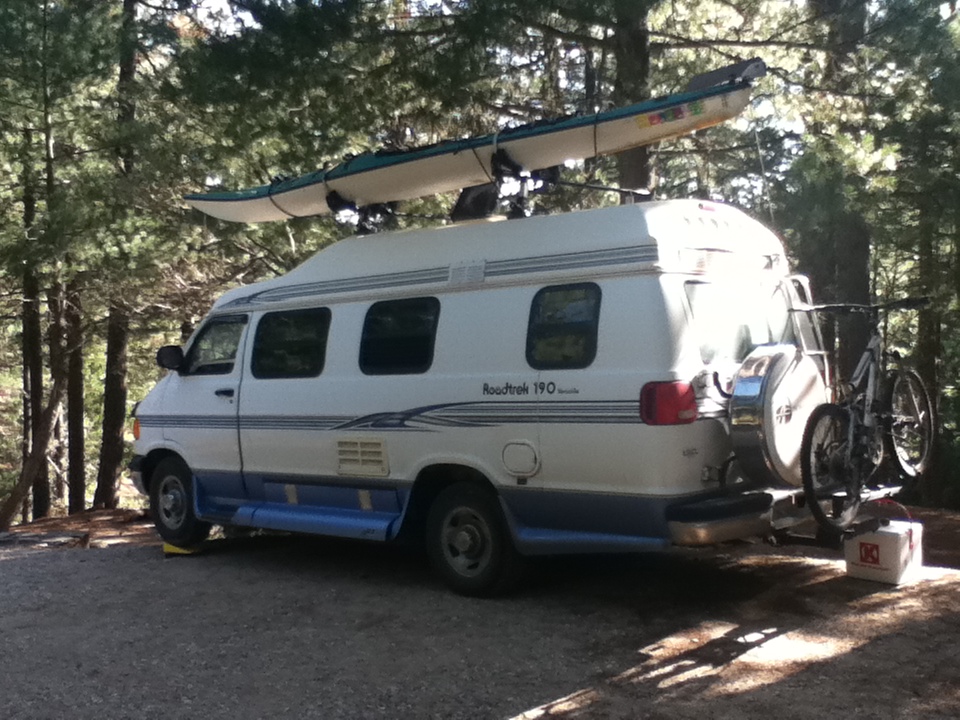
SAFE PRACTICES
knowledge & training
… learned after the fact.
1) ALWAYs park above past flood levels, if any visible, If in the mountains or alongside oceans & rivers. Ironically, further south along the coast were many flood-level signs.
2) Ask nearby locals & police, if any questions, but I didn't see the question.
Stuff happens.
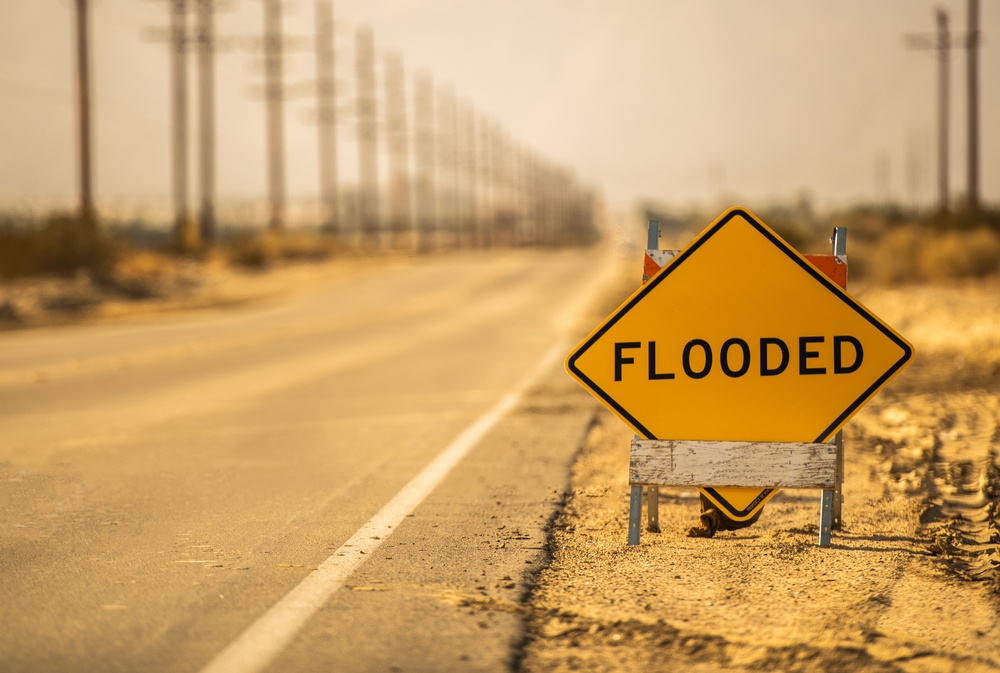
Table of Contents
quick links to main Travel Safety posts
Travel Safety 1: INTRO & Risks END
Travel safety knowledge equals confidant, prudent travel anywhere!
So I will try to alert you to areas you must “prepare for” & hope you do .... so you won't suffer the consequences which you will sometimes suffer anyway -- to some degree therein lies the excitement, challenge & satisfaction of solo international travel.
So, what’s next??? ….
1st, we’ll discuss your “travel appearance & travel behaviors.”…
2nd, we’ll get the scary ‘harsh crimes’ stuff out of the way AND
3rd, finally, we’ll move quick & deep into more typical 'soft' crimes
Safety Post #2: Tourist Appearance [link] to next TOC item
